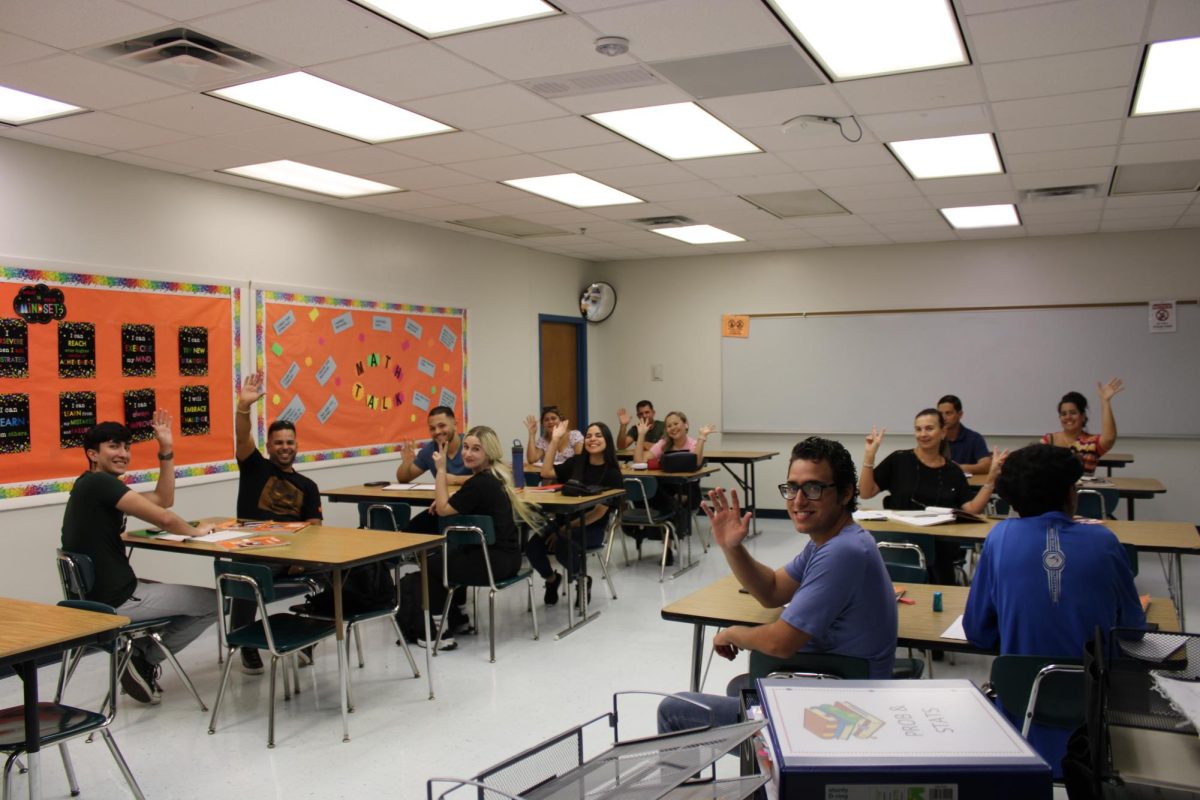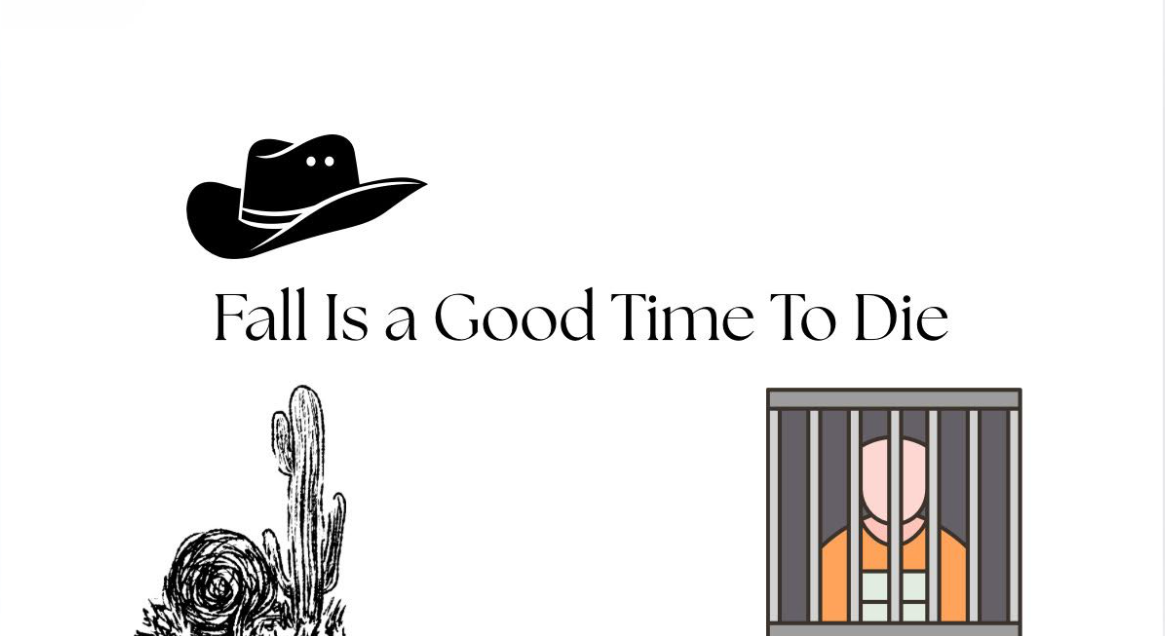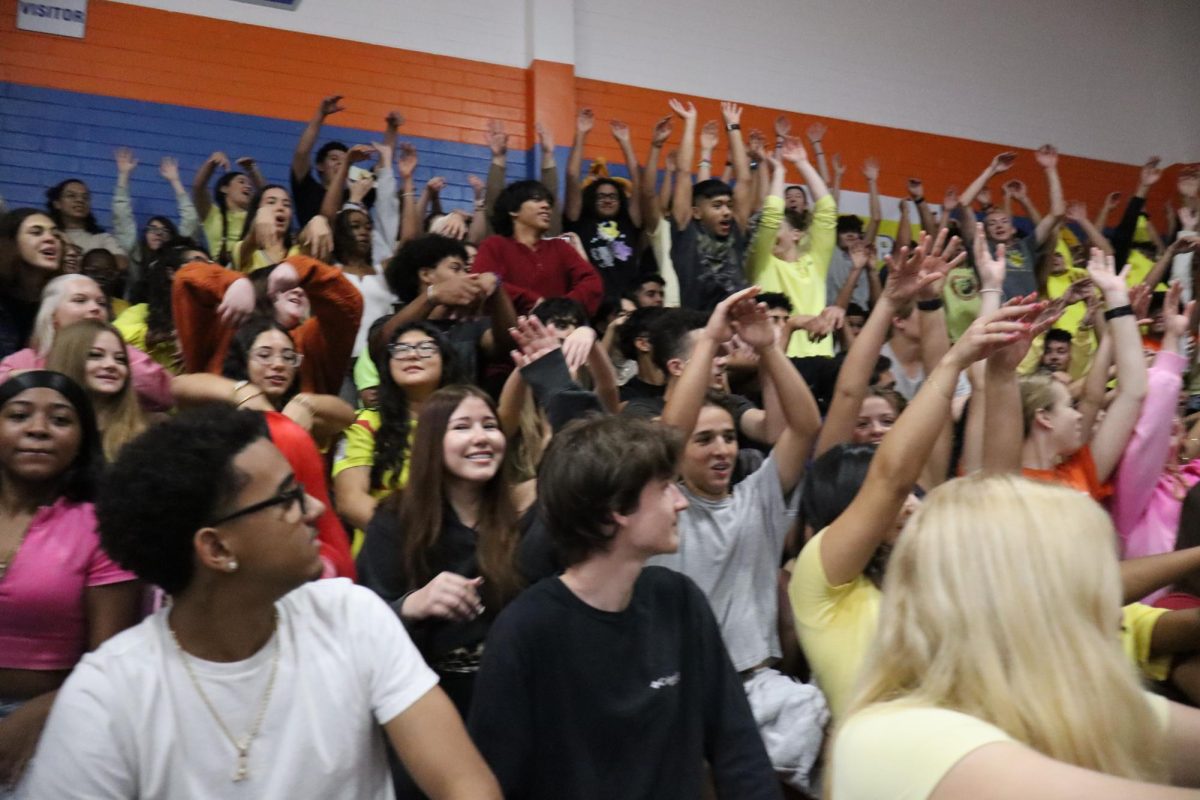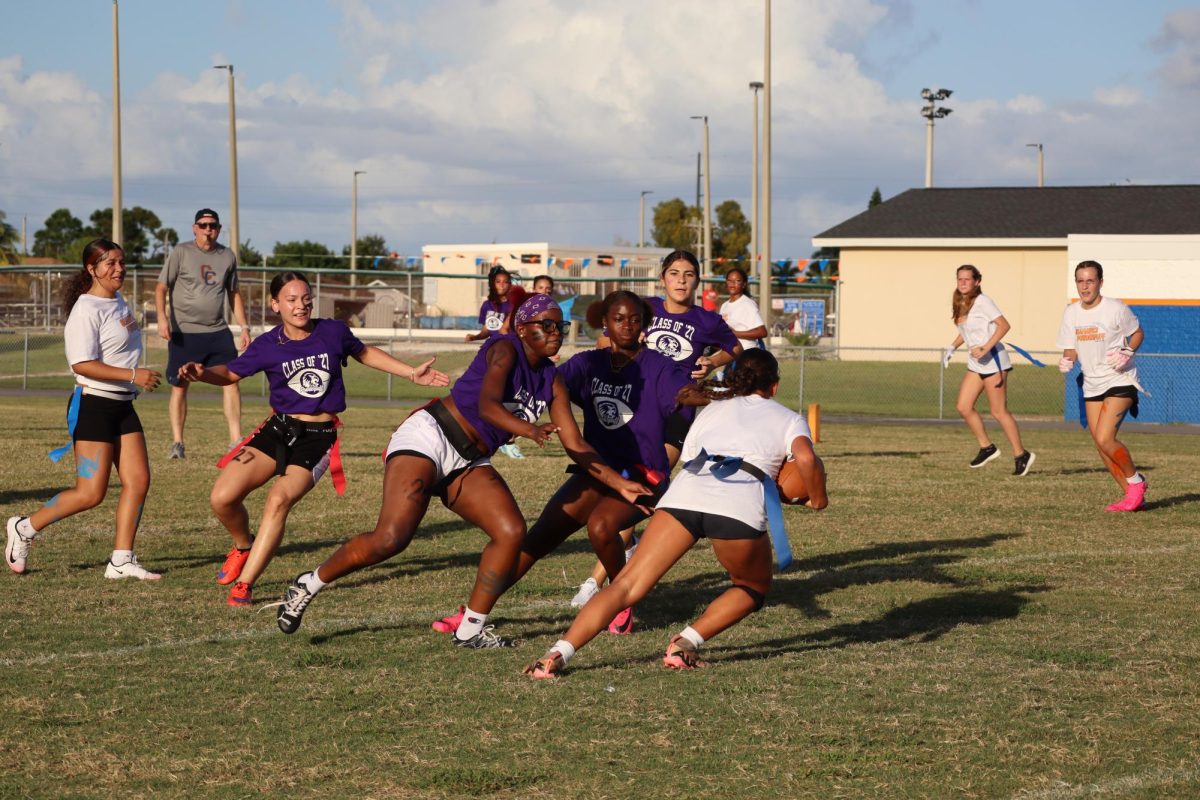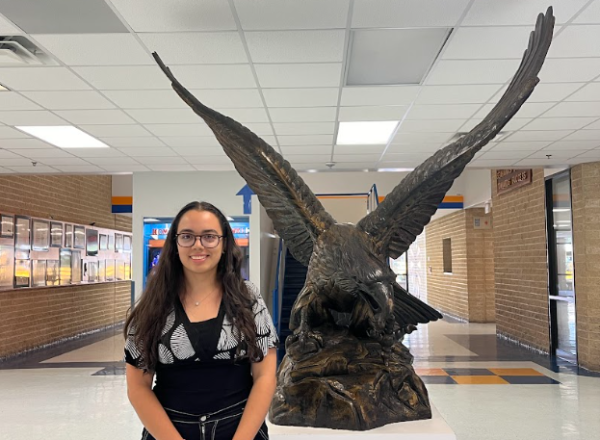Twice a week in the evenings, the halls of Cape Coral High School fill with the sounds of different languages weaving together, boisterous laughter, and more than anything, the exuberant energy of over 150 adult & career education students prepared for a night of learning.
The adult and career education (ACE) program is offered by the Lee County School District for students in all stages of life. To help the largest number of people possible, the district has morning, night, and online classes available at schools in different zones.
Classes require a $30 fee per semester. In total there are three semesters per year, with the fall semester beginning in August and ending in December, for a total of 15 weeks. Cape High offers classes on Tuesdays and Thursdays from 5:00 to 9:00 p.m. which include four different English classes, one GED class, and two different art classes.
IB art teacher Melissa Heineman has been teaching ACE art classes since 2013. She teaches a ceramics class with approximately 20 students in it, as well as an acrylic painting class with 12, and they each meet once a week.
“The concepts and techniques and the mediums associated with ceramics are one of the classes,” said Heineman. “And then the other one is acrylic paint. So they learn the basics and then we build on their skill level by assigning projects that they can choose to do or not to do, although most of them choose to do the projects.”
Ultimately Heineman is glad for this opportunity. “I love teaching and I can do what I love and get paid to do it,” stated Heineman.
During COVID, classes were suspended, however, since starting back up the numbers have returned to their previous sizes. “After COVID when we started to open back up, our enrollment numbers were low or lower than usual,” explained Cape High Site Coordinator for Adult Education, Wendy Chapman. “But little by little I think with every semester since COVID, we have increased our enrollment.”
ESOL classes are the most popular at Cape High, which is why prior to beginning enrollment, students take a reading and audio diagnostic test that assigns them to levels one through six, which places them in one of the four English classes available.
“In our group when we took the test, we were within the four to five range,” stated English student Carlos Lopez who has been living in the US for a year and eight months. “However, within each class every individual is different, there are people who are more advanced and people who are struggling a little bit more with acclimating to the course.”
Courses are taught in a plethora of ways, ranging from textbooks, verbal instruction, or websites. Similarly to schools, ACE classes follow the curriculum framework in place by the Florida State Department of Education.
“You don’t have enough interaction time, four hours a week times two is 8 hours a week, and it isn’t enough,” said Lopez. “They have a program, a website so that we can interact with audio-visuals and do practice exercises that are more dynamic.”
Classes are all-encompassing, teaching students how to read, write, speak, and listen in English in addition to life skills and workforce preparation. The ultimate objectives for most students are joining the workforce, getting a GED, or post-secondary education.
“[I’m taking these classes] for professional betterment and just to learn because the English that you talk here is not the same as the one you learn in Cuba,” said Judith Veitia who moved eight months ago. “In Cuba, it’s ‘hello hello’, how are you? how are you?’ and the dialogue ends there.”
Marcos Villalejos agreed, saying, “I came here in January and it’s important [to learn English] because we come from one language and culture to another, and English is fundamental for everything, to work and communicate. The classes are very educational, the people give their best to teach us.”
Once students get to a level seven skill level, they test out of the program. Although students don’t receive credits for the course, they do receive a certificate of completion.
Cape High has been offering these courses for decades prior.
“When I first moved to Cape Coral, very few people spoke Spanish,” stated Yamilet Rodriguez, who took ESOL classes at Cape High 16 years ago. “The classes gave me the motivation to learn and better myself, it was the first step towards development in this country. The people who take these classes could end up being nurses or on the first line of defense.”
Although Chapman has been Cape High Site Coordinator for ten years, Chapman was previously an ESOL instructor in 2007.
“I did go through the process of learning Spanish. My mom made me take Spanish as an elective through middle school in high school,” said Chapman. “So I’ve always been able to speak both languages and knowing my background of coming from immigrant parents I truly wanted to help the students that go through our program because I know where they’re coming from.”
More than anything, these classes offer students the unique opportunity to learn alongside a supportive community of English learners. Students are comforted by the familiarity of their peers in similar situations while preparing for the future ahead of them.


